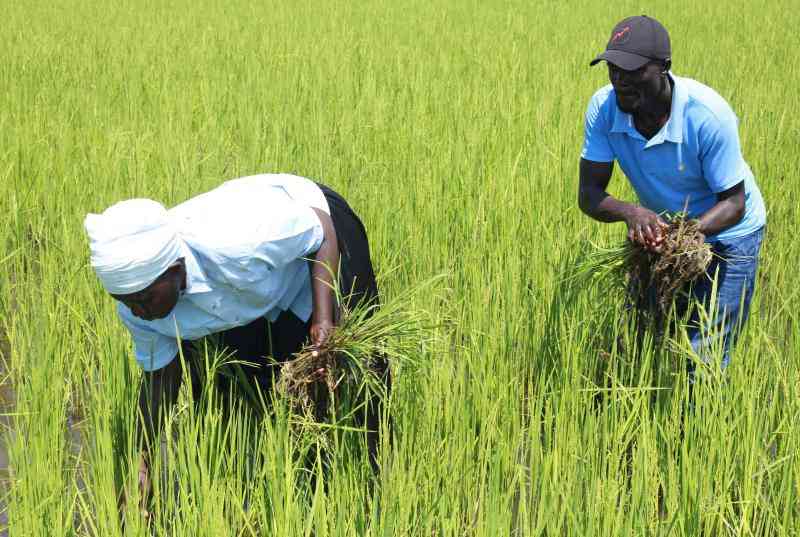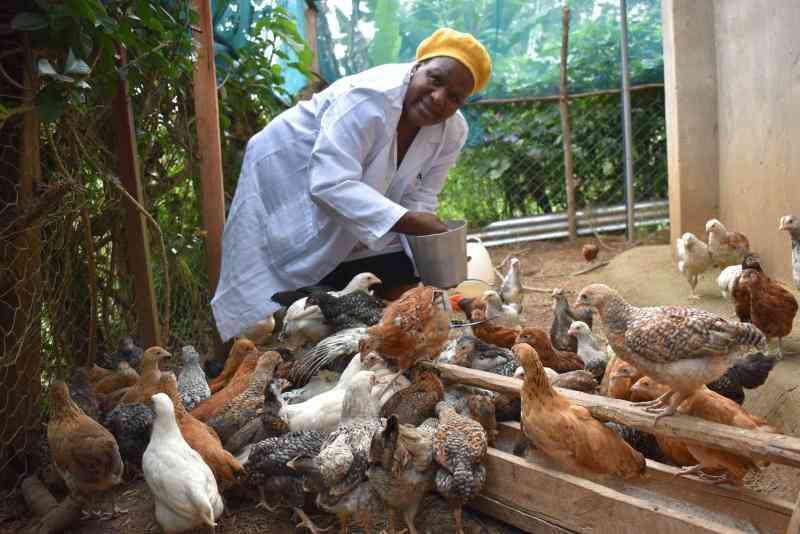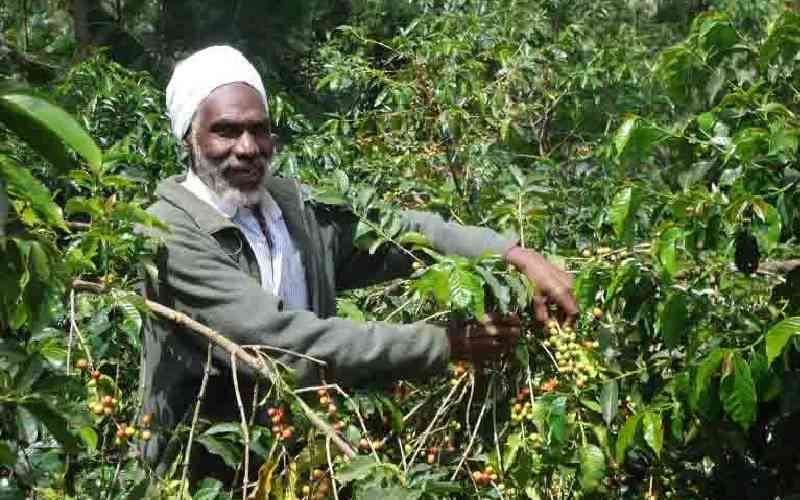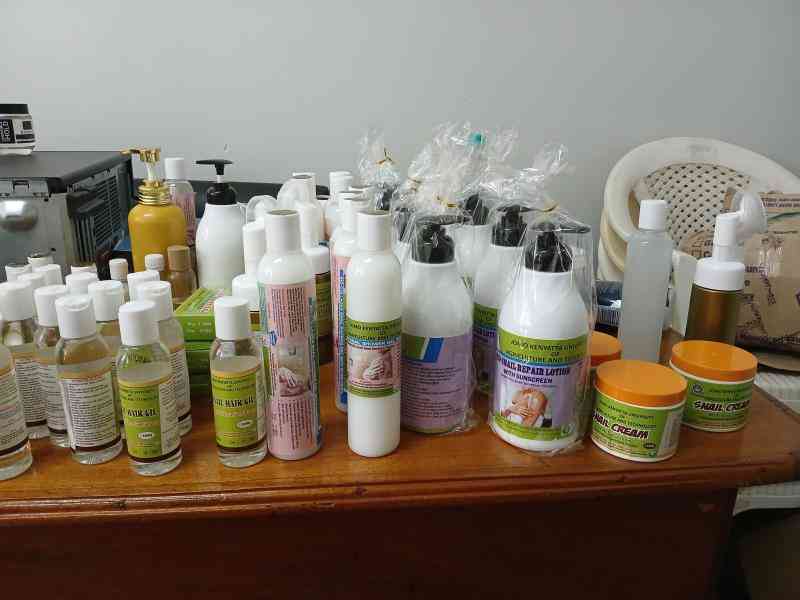US President Barack Obama, wrapping up a visit to the continent of his father’s birth, toured an Ethiopian factory making baby food to show how investment in farming can cut hunger and stunting.
Child stunting has fallen by up to one-third over the past few years in African countries targeted by the US government’s global hunger initiative, Feed the Future, a report released last week said.
Obama has made food security a priority of his development agenda, saying in 2013 it was a “moral imperative” to end hunger on the world’s poorest continent.
“The goal is to drastically increase productivity of smallholder farmers all throughout Africa,” Obama said while examining maize cobs at Faffa Food plant in the Ethiopian capital, Addis Ababa, on the last leg of his African tour.
“With just a few smart interventions, a little bit of help, they can make huge improvements in their overall yields.”
One of the farmers Obama met at the factory said she had increased her yield threefold after getting better seeds, which allowed her to buy a cow and send her children to school. In Ethiopia, stunting fell by nine per cent between 2011 and 2014, the report said.
The improvement was more dramatic in Ghana, which recorded a 33 per cent drop in stunting between 2008 and 2014, and in parts of western Kenya, where it fell by 25 per cent between 2009 and 2014.
Africa has the world’s highest rate of stunting, affecting two in five children on the continent. It is caused by under-nutrition in the first 1,000 or so days of life.
Millions of poor African farmers rely on cheap staple foods to fill their children’s stomachs because they cannot afford the nutrient-rich diets they need.
Stunted children learn less in school and usually earn less, trapping them in a cycle of poverty.
Twelve of the 19 countries where Feed the Future works to help farmers grow their businesses are in Africa. Ethiopia — once known for famine although its economy is on track for 10 percent growth this year — is one of them.
Faffa Food, Ethiopia’s largest baby food supplier, received technical assistance from Feed the Future, in partnership with US multinationals, to expand the range and quality of its nutritious baby foods.
“It is a model that’s working,” said Obama, who toured Kenya and Ethiopia, and addressed the African Union in Addis Ababa.
Elsewhere, music icons including Willie Nelson and Neil Young will campaign against power of agricultural companies and the rise of genetically modified food at the 30th anniversary of Farm Aid.
The musicians last week announced that the latest incarnation of Farm Aid, launched in 1985 to support struggling US farmers, would take place on September 19 in Chicago on Lake Michigan.
Stay informed. Subscribe to our newsletter
The 30th anniversary show will include the three stars who put together the original benefit concert — 82-year-old country legend Willie Nelson, folk rocker and activist Neil Young and heartland rocker John Mellencamp.
Other artistes on the lineup include blues pop star Dave Matthews, pop rockers Imagine Dragons and country singer Kacey Musgraves. Keeping a tradition from recent editions of Farm Aid, the concert will sell organic food from family farms in the region and serve as a platform for activism. Farm Aid has embraced an agenda of supporting small farmers and reducing the power of big agricultural companies.
“Industrial agriculture does not serve family farmers, our economies or public well-being. Instead, we continue to see the negative impacts of unchecked market power and the loss of family farmers from the land,” Farm Aid’s website says.
Farm Aid has also advocated transparent labeling of genetically modified food and assurances that small farmers will maintain access to seeds. The House of Representatives last week passed a bill supported by food industry giants that would prevent states from requiring labels for genetically modified food.
Young has been outspoken against genetically modified food, especially on his latest album “The Monsanto Years.” The original Farm Aid came months after the massive Live Aid concerts in London and Philadelphia that raised relief for famine-struck Ethiopia. Bob Dylan at Live Aid quipped that some of the money should go to farmers struggling to pay their mortgages.
His remarks triggered criticism, with Live Aid founder Bob Geldof saying that the woes of US farmers could not compare to Ethiopia’s famine, but Nelson, Young and Mellencamp went ahead and organized a separate Farm Aid event.
 The Standard Group Plc is a
multi-media organization with investments in media platforms spanning newspaper
print operations, television, radio broadcasting, digital and online services. The
Standard Group is recognized as a leading multi-media house in Kenya with a key
influence in matters of national and international interest.
The Standard Group Plc is a
multi-media organization with investments in media platforms spanning newspaper
print operations, television, radio broadcasting, digital and online services. The
Standard Group is recognized as a leading multi-media house in Kenya with a key
influence in matters of national and international interest.
 The Standard Group Plc is a
multi-media organization with investments in media platforms spanning newspaper
print operations, television, radio broadcasting, digital and online services. The
Standard Group is recognized as a leading multi-media house in Kenya with a key
influence in matters of national and international interest.
The Standard Group Plc is a
multi-media organization with investments in media platforms spanning newspaper
print operations, television, radio broadcasting, digital and online services. The
Standard Group is recognized as a leading multi-media house in Kenya with a key
influence in matters of national and international interest.









